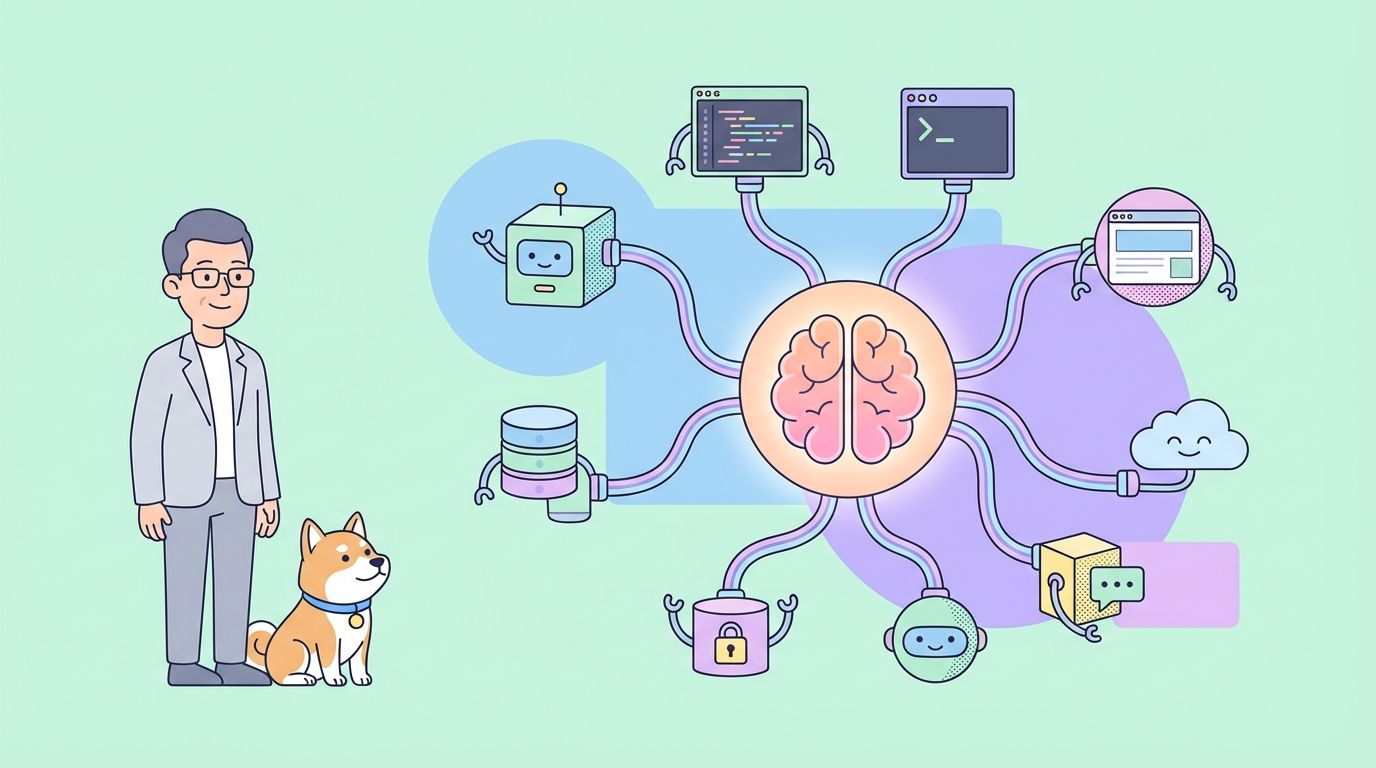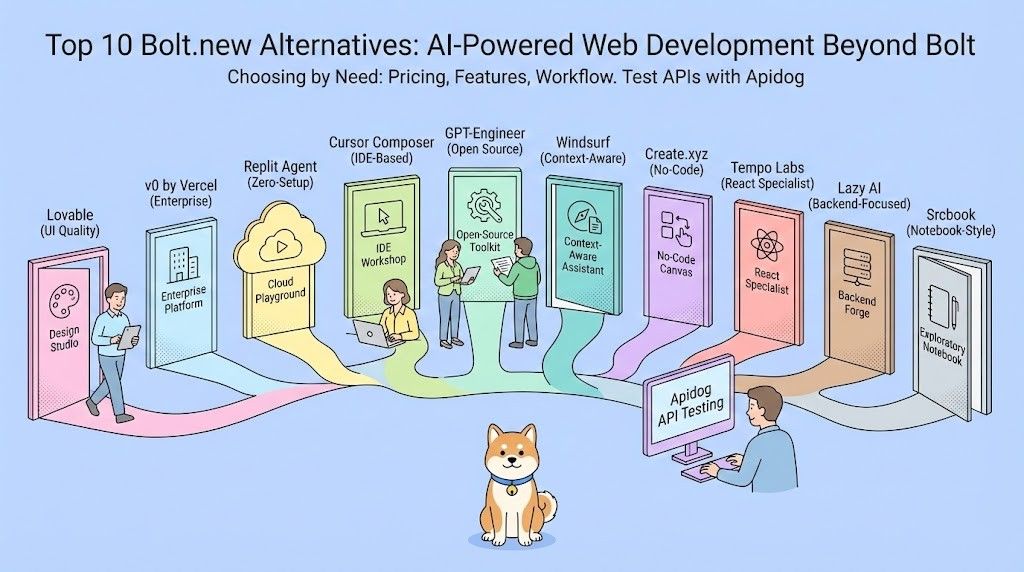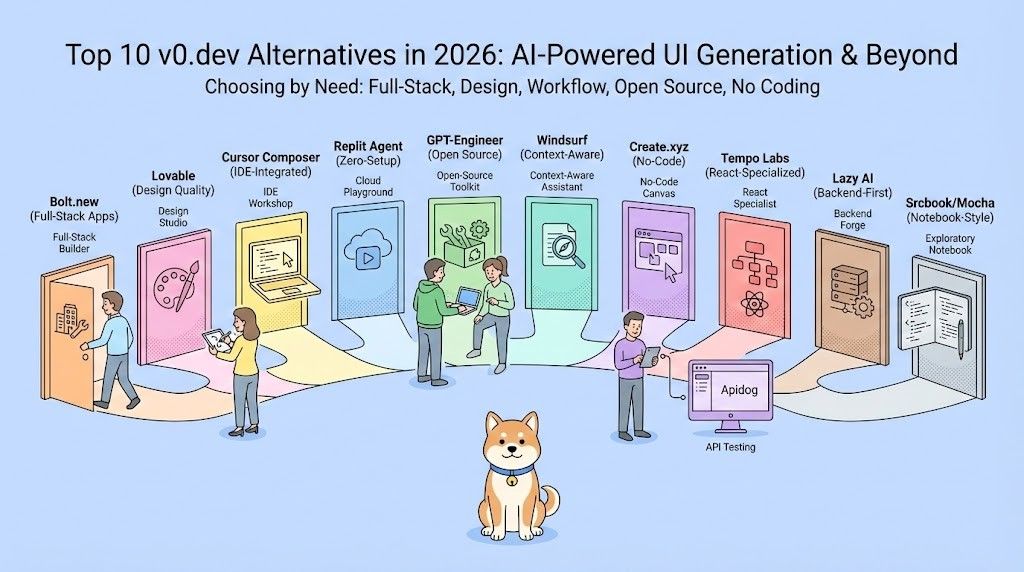Integration testing is a critical stage in the software development lifecycle. It ensures that various components, services, or modules of an application work together as expected. In 2026, the demand for efficient and developer-friendly integration testing tools has surged — especially with the rise of microservices, APIs, and cross-platform applications.
Why Integration Testing Matters in Modern Development
In today’s fast-paced development cycles, especially with the rise of microservices and complex APIs, integration testing is no longer optional — it’s essential. Unlike unit testing, which isolates and tests small chunks of code, integration testing ensures that different parts of your application work together seamlessly. It helps identify issues in communication between components, data formatting errors, and unexpected behavior from third-party services.
With more teams adopting CI/CD workflows, automated integration testing tools are becoming critical for catching bugs early and maintaining code quality across environments. Whether you're developing web apps, mobile platforms, or backend services, choosing the right tool can make or break your testing pipeline.
Here are the Top 10 Integration Testing Tools for Developers in 2026, carefully selected for their robustness, features, ease of use, and modern tech compatibility.
1. Apidog - The All-in-One API Design & Testing Platform

Best for: Full-stack API testing, integration testing, documentation, and mocking.
Why developers love it:
- Unified platform for designing, testing, and documenting APIs

- Seamless support for integration testing with workflows
- Easy-to-use UI plus support for scripting
- Built-in mock servers and environment management
- Automated test scheduling and team collaboration features

Apidog isn’t just an API client — it’s a full-stack platform designed to streamline the development, testing, and maintenance of APIs across services. Its integration testing capabilities allow developers to simulate complex workflows between APIs, trigger chained requests, and validate data across endpoints. With support for environments, dynamic variables, and automated test cases, Apidog is ideal for teams building modern, distributed systems.
If you're working on microservices, SaaS platforms, or mobile-backend APIs, Apidog provides all the tools you need to ensure every layer integrates flawlessly.
2. Postman

Best for: API-first integration testing and collaboration
Why developers love it:
- Intuitive interface with drag-and-drop request flows
- Built-in test scripting using JavaScript
- Powerful monitoring and collection runner
- Supports GraphQL and WebSockets
Postman remains a staple for developers and QA engineers alike. While it started as an API client, it has evolved into a comprehensive testing and collaboration platform. Postman’s "Collections" and "Monitors" allow teams to chain requests, simulate workflows, and validate complex integrations. It also supports mock servers and environment configurations for thorough testing.

3. SoapUI

Best for: SOAP and RESTful web service integration testing
Why developers love it:
- Support for legacy and modern APIs
- Groovy scripting for complex test logic
- Data-driven and security testing features
SoapUI (especially the Pro version) is tailored for enterprise-level integration testing. It allows testers to create test cases that validate SOAP, REST, and even JDBC integrations. The tool’s scripting capabilities and customizable assertions make it a great choice for regulated industries and legacy systems.

4. Karate DSL

Best for: Programmable integration testing with low-code feel
Why developers love it:
- Combines API testing, performance testing, and mocks
- Simple Gherkin-style syntax
- Built-in support for JSON and XML parsing
Karate DSL empowers developers and QA engineers to define comprehensive integration tests using minimal code. It’s great for CI/CD pipelines and supports reusable features across different services. If you want a mix of human-readable syntax and powerful logic, Karate is a fantastic choice.

5. Cypress (for frontend-backend integration)

Best for: Full-stack testing of frontend apps with API integrations
Why developers love it:
- Time-travel debugging and live test reloading
- Works natively with modern JS frameworks
- Easy setup with local dev servers
Though Cypress is primarily known as an end-to-end frontend testing tool, its ability to intercept and test API requests makes it great for frontend-backend integration testing. You can use Cypress to test how UIs interact with APIs, simulate edge cases, and validate real-time flows.

6. JUnit + Spring Test (Java)

Best for: Java and Spring-based integration testing
Why developers love it:
- Tight integration with Spring Boot
- Database testing and embedded server support
- Full lifecycle context loading
Java developers building microservices with Spring Boot rely on JUnit and Spring Test for integration validation. These tools allow in-memory testing with H2, MongoDB, or custom configurations. Integration tests can cover REST controllers, database interactions, and security layers.

7. Pytest + Requests (Python)

Best for: Lightweight yet powerful integration tests in Python
Why developers love it:
- Simple test syntax with fixtures and setup
- Works well with HTTP libraries like Requests
- Easily integrates with CI/CD tools
Pytest, when combined with the Requests library, becomes a powerful tool for writing and running integration tests in Python. Whether you're testing RESTful APIs, database connections, or microservices, this combo is favored for its flexibility and extensibility.

8. Rest Assured (Java)

Best for: REST API integration testing with Java
Why developers love it:
- BDD-style testing for REST services
- Integrates easily with JUnit and TestNG
- Great for validating JSON/XML responses
Rest Assured simplifies REST API integration testing in Java, especially when you want readable tests that cover authentication, status codes, and deep response validation. It's well-suited for backend teams with complex service interactions.

9. ReadyAPI (SmartBear)

Best for: Enterprise-grade API and database integration testing
Why developers love it:
- GUI + scripting for flexible test creation
- API virtualization and environment simulation
-Extensive reporting and security testing
ReadyAPI is the commercial successor to SoapUI Pro and offers deeper integration capabilities, including database testing, message queues, and asynchronous workflows. It’s built for enterprise teams that need robust automation, reporting, and compliance.

10. TestContainers

Best for: Docker-based integration testing environments
Why developers love it:
- Spin up real services using containers during test runs
- Perfect for microservices and DB integration
- Works with Java, Node.js, Python, Go, and more
TestContainers lets you run your integration tests in realistic environments by spinning up actual service containers. Whether it's a PostgreSQL database, Redis, or Kafka, TestContainers ensures your integration tests run against the real thing — not mocks.

Comparison Table
| Tool | Best For | Language Support | Key Feature |
|---|---|---|---|
| Apidog | Full-stack API & integration tests | UI + JS/TS | Design + Test + Document APIs |
| Postman | API workflows and automation | JavaScript | Collections & monitors |
| SoapUI | SOAP & REST service testing | Groovy/Java | Legacy system compatibility |
| Karate DSL | Scriptable BDD-style testing | DSL | Unified test + mock framework |
| Cypress | Frontend + API integration testing | JavaScript | Live browser testing with API intercepts |
| JUnit + Spring | Spring Boot integration | Java | Full context testing and embedded DBs |
| Pytest + Requests | REST APIs in Python | Python | Fixtures and HTTP validation |
| Rest Assured | REST APIs in Java | Java | BDD-style HTTP tests |
| ReadyAPI | Enterprise-level integrations | GUI + Groovy | API virtualization and reports |
| TestContainers | Microservice test environments | Multi-language | Dockerized real-service testing |

Conclusion
Integration testing is no longer optional — it’s a core requirement for teams building APIs, distributed systems, and modern web apps. Whether you’re working on microservices, cloud-native systems, or frontend apps that talk to APIs, the tools listed here will help you catch bugs early, ensure consistency, and reduce deployment risks.
If you're looking for a powerful, all-in-one solution for API design, testing, and integration workflows, don’t overlook Apidog. Its rich feature set and developer-friendly experience make it the go-to platform for 2026.
Choose the tool that fits your stack, and start building with confidence!



